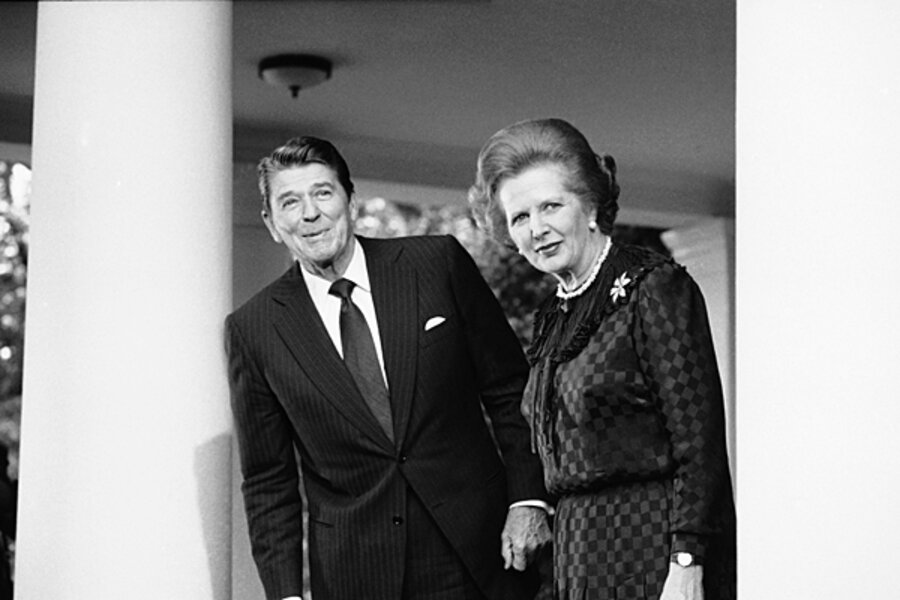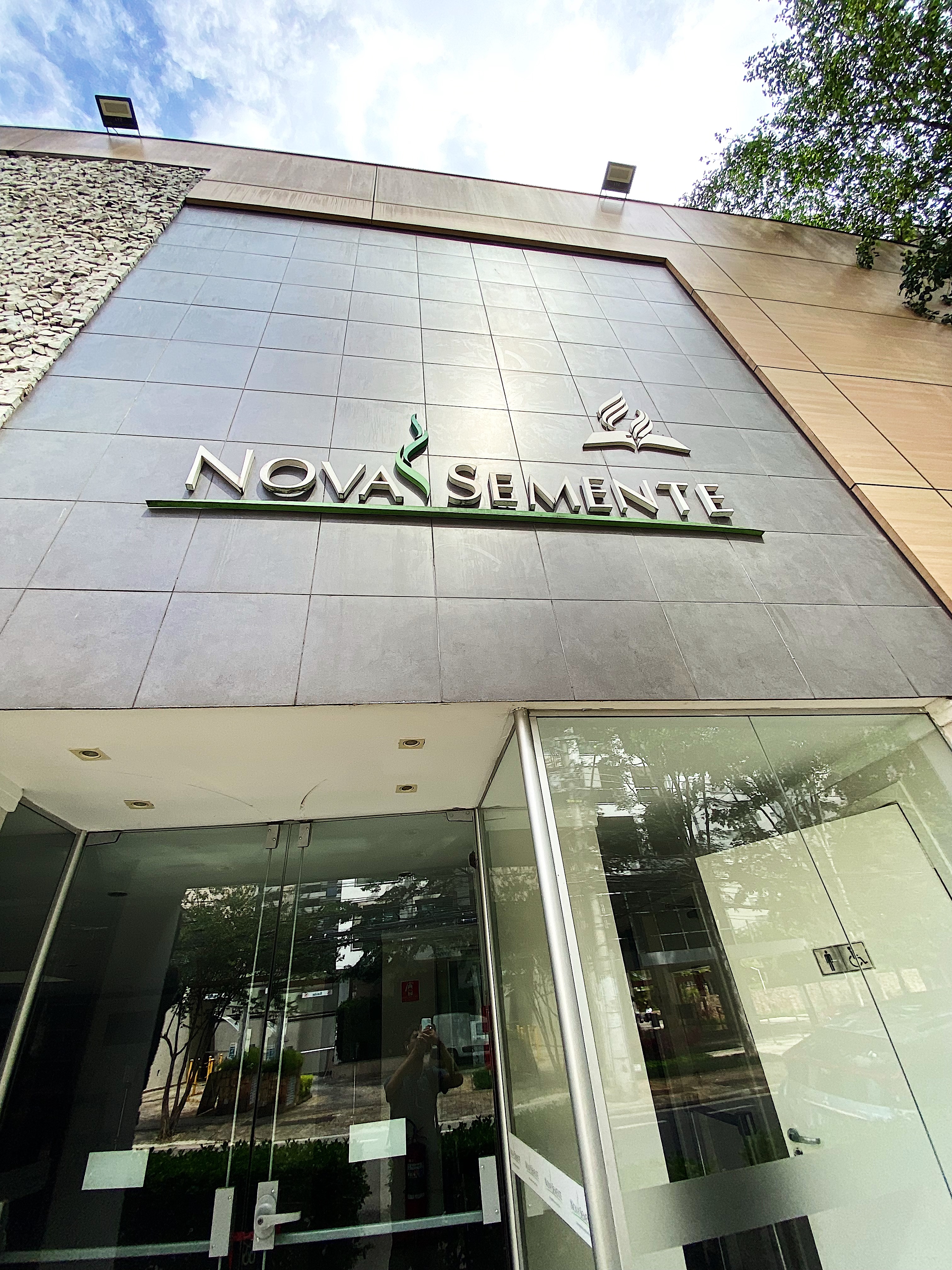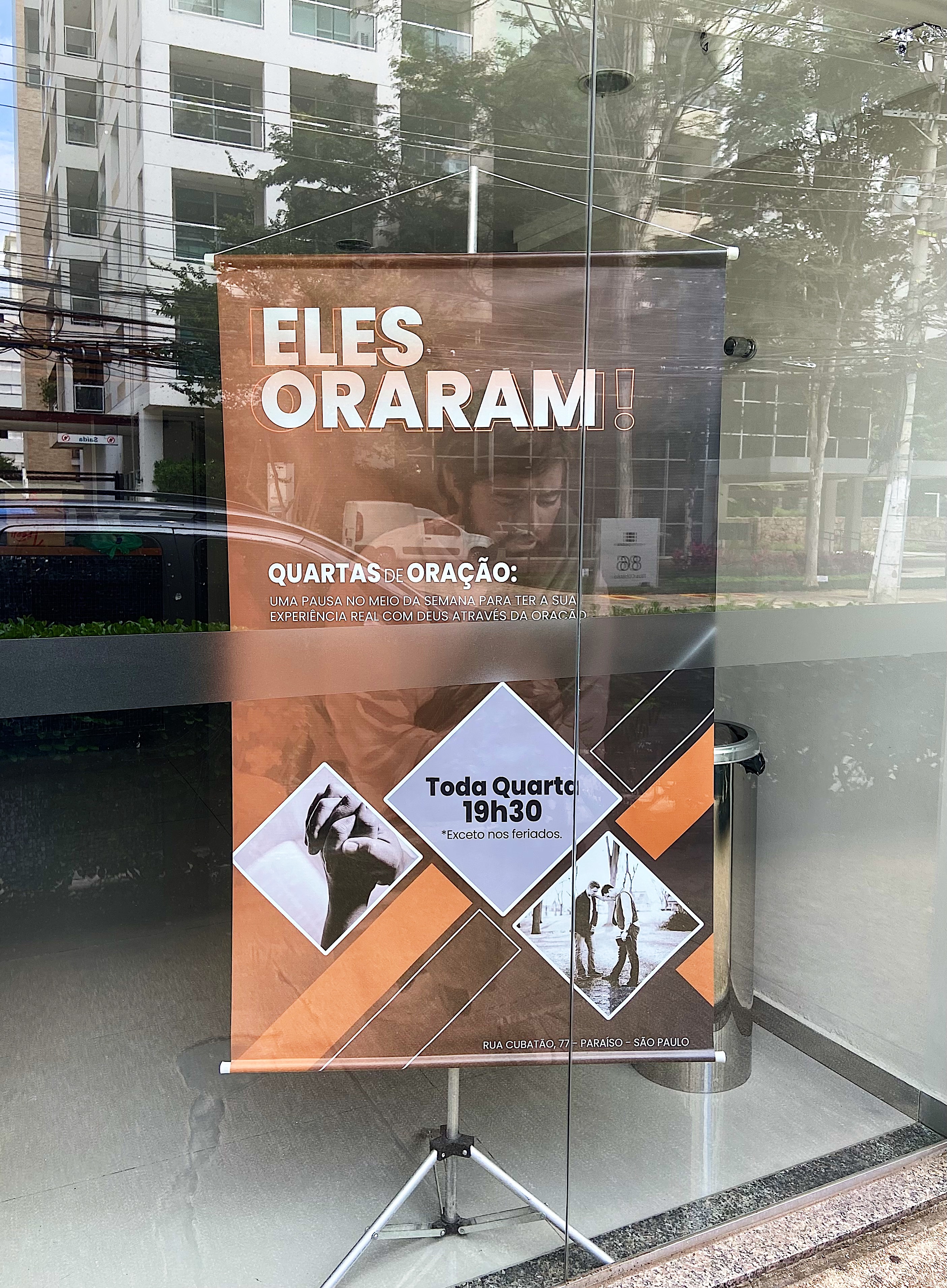evangelical aesthetics: between the
neo-pentecostal and neoliberalism in Brazil
leo gimenes + aminta zea
17/02/2023
español
portuguese
The explosive expansion of the evangelical community throughout Brazil is a consequence of it being statistically the fastest growing religious group nationwide. Its current visibility in politics is due in part to the Bancada Evangélica (Parliamentary Evangelical Front) and local businessmen who support a right-wing conservative agenda. Roaming around São Paulo, we can observe how sites of religious practice and corporate enterprise share a stark visual identity. Concentrated in upper middle class neighborhoods, the front doors of some evangelical churches and corporate neoliberal establishments are not mere coincidences – they illuminate a tightly wound ideological and aesthetic relationship that props up individualism and labor as a means of identity and value. Between neoliberalism and neo-pentecostalism we find sociopolitical tendencies that ultimately spell trouble for left-oriented social movements in Brazil.

When we take a look at the current statistics pertaining to the national religious communities, Catholics are still dominant, ranking up to 50%. However, the "crente" community, as we often call them in Portuguese, is already the second largest in absolute numbers (31%). Evangelical churches in Brazil are one of the most perceptive and profitable investments, benefiting from unbelievable tax breaks as a result of them being a nationally recognized religious institution. Law nº 3.193 allows pastors to lead a double life as CEOs, overseeing a tremendous spread of temples throughout the country.
Before we begin to explore the visual components of Brazilian evangelical institutions and their eminent political reverberations, it is important to explain a few concepts.
neoliberalism within the brazilian context: economic catastrophe under fernando collor
 Broadly speaking, our perception of neoliberalism primarily involves the exploitation of labor in the Global South by the Global North in a "post-colonial" but imperialist dynamic strengthened and severely dynamized by technology. It incorporates environmental racism alongside old Monroe Doctrine policies such as the financing of election interventions, coups and propping up tyrannical governments paid for with cold hard Benjamins.
Broadly speaking, our perception of neoliberalism primarily involves the exploitation of labor in the Global South by the Global North in a "post-colonial" but imperialist dynamic strengthened and severely dynamized by technology. It incorporates environmental racism alongside old Monroe Doctrine policies such as the financing of election interventions, coups and propping up tyrannical governments paid for with cold hard Benjamins. Another key component is the individualization of workers' lives and the implementation of a culture that sees the individual worker as an entrepreneur, followed by the criminalization and repression of public life. Organizations such as unions, social movements and other forms of resistance brought by civilian unrest are severely punished by a bourgeois state.
And then of course there’s the matter of state intervention. You didn't read that wrong, however it is not implemented through the construction of a welfare state or a socialist way of life. It is through the continuously morphing facilitation of new, more aggressive paths toward capital accumulation, drafting a new chapter in the history of capitalism.
What is to be said, too, about the uberization of work? The recent mass outsourcing accompanied by the negation and suppression of workers’ rights guarantees an increase in profit margins and surplus value extraction by a decadent ruling class. We see this happening in real time in Brazil, considering the recent and progressive dismantling of the CLT (Consolidation of Labor Laws), an important set of laws created in 1943 during the Getúlio Vargas' administration, establishing legal protections against countless labor abuses and cementing those rights within federal law.
This rather abstract, broad and perhaps somewhat generic definition, however, needs a more specific historical follow-up. Brazilian marxist economist Alfredo Saad-Filho helps us in this task, in his article "Neoliberalism: A Marxist Analysis". The methodological difficulty of defining neoliberalism within contemporary Marxism is partly because of how it treads a fine line; it is abstract and universal, making it applicable not exclusively to different political and economic environments, but also to people's lives, culture and daily reality. Yet, it is also incredibly material and specific, in the way that it exists fundamentally inside set institutions, such as governments or corporations.
The popularization of the term "neoliberalism" can be traced to the late 1930s within the Chicago School; authors such as Milton Friedman and other advocates of laissez-faire capitalism saw it as a counter to Franklin Roosevelt's New Deal response to the Great Depression of 1929. The main criticism from neoliberal authors concerned state intervention in private affairs, particularly market regulation that interfered with capitalism's freedom to be. Saad-Filho further explains that neoliberals thought individuals exchanging goods, services or information in open markets could better allocate resources than democratic processes or State guidance.
This academic critique inspired a set of policies, practices and institutions inspired and/or validated by neoliberal intellectuals. As a consolidated State policy outside academic spaces, we can date neoliberalism back to the 1970s, with the Latin American pioneering privatizations of the bloodthirsty dictator Augusto Pinochet in Chile, followed by governments such as those of Prime Minister Margaret Thatcher in England between 1979 and 1990, and Ronald Reagan in the US between 1981 and 1989. It essentially consisted of a palpable class offensive led by the state against the working class on behalf of the ruling class or the financial market in particular.

In Brazil, neoliberalism was consolidated belatedly largely because of the US supported military dictatorship that lasted until 1985. The government of Fernando Collor de Mello in the 1990s created playground conditions for neoliberalism to take place. Collor’s administration is widely referred to as a complete disaster, a really controversial one. It involved the decision to privatize massively strategic state companies, such as Companhia Vale do Rio Doce, which was and still is the main national mining company; and Companhia Siderúrgica Nacional, a central steel mill company.. He also decided to confiscate the savings accounts of millions of Brazilians for a year and a half in an attempt to reduce currency circulation, which caused social instability, mass depression and generalized economic anxiety. His actions resulted in his resignation halfway through his mandate because of corruption accusations that culminated in a process of impeachment and removal from office.
The concluding perspective introduced by Saad-Filho is neoliberalism as a material structure of economic, social and political reproduction, implying that neoliberalism operates as the zeitgeist of capitalism. In that sense, neoliberalism involves the merging of a strong business-guided culture and the corporatization of life, due to the individualization of the working class, as well as the worker being socially perceived as an “entrepreneur.” This concluding perspective will be useful to us in understanding how corporate culture during our neoliberal era shows up in other arenas of social life, such as religion and aesthetics.
pentecostalism in its corporate era
Neo-Pentecostal evangelism, also known as the Third Pentecostal Wave, consists of Christian, protestant influenced movements that emerged around the 1970s. And in case you're wondering, no, it's no coincidence that it began exactly during the implementation of political neoliberalism across the world. In Brazil, Neo-Pentecostalism finds its most influential representatives in Igreja Universal do Reino de Deus (founded in 1977 in Rio de Janeiro), Igreja Internacional da Graça de Deus (founded in 1980 in Rio de Janeiro) and Igreja Mundial do Poder de Deus (founded in 1998 in São Paulo), among others. Assembleia Mundial de Deus deserves an honorable mention here too. The fact that it holds a branch of the Arkansas-based World Assemblies of God Fellowship (founded in 1914) is another form of imperialist intervention through religious dogma, exported to a region that couldn’t be any more different. WAGF is the largest Neo-Pentecostal association in the world, and certainly aims to set out neo-colonial relationships within foreign territories.
Because of its protestant roots, the morality surrounding Neo-Pentecostal ideology resonates with very capitalist liberal ideas. The Prosperity Theology is the formal doctrine behind this intimate relationship, which was already deeply explained by German economist and founder of sociology Max Weber in "The Protestant Ethic and the Spirit of Capitalism". He argues that this spirit is the result of a historical individuality in which all relation systems and social connections correspond to a cultural totality. The spirit of capitalism is everything that surrounds it and not merely its material reality in political and economical institutions and leaders; it's also a part of culture, and religion is a great example of that. It can, therefore, experience agglutinations, inclusions, alterations and all sorts of adaptations.
At some point, capitalism’s ethical doctrine was infused in Christianity, which resulted in protestantism holding as a fundamental value the duty of men to be financially successful and accumulate wealth as a means in itself, and as shameful to not do it so. That resulted in the spirit of capitalism being an ethically crowned coercion to generate private property by the church.
With that logic, labor is understood as a maximum effort to obtain wealth. Wealth is seen as a sacred duty of men towards themselves and their families. Protestantism, as well as other related religious doctrines, operates in a very different ideological arena than other forms of Christinianity, to say the least. That is not to say that other Christian doctrines weren't also capitalist, but definitely in a less direct, strict and imposing way.
What distinguishes evangelicals from other Christians in the current Brazilian social context though, is their growing insertion in national politics. This is attributed to two sociopolitical phenomenons: former president Jair Messias Bolsonaro, although Catholic, has devoutly promoted an evangelical agenda and is married to an evangelical woman. He has openly received support from pastors such as Edir Macedo - leader and founder of the Igreja Universal do Reino de Deus, the biggest conglomerate in the country; congressman Marco Feliciano and television host Silas Malafaia - both leaders of churches associated with the WAGF - in addition to other evangelical leaders who have united in the construction of the Bancada Evangélica (Parliamentary Evangelical Front). This is a group of politicians within Congress whose ideals are aligned with an openly conservative, neoliberal, misogynist, homophobic, and racist ideology.
In addition to this, many right-wing businessmen have shown support for the former president and have also allied themselves with the Front, such as Luciano Hang - owner of the Havan retail franchise - and Flávio Rocha - owner of the Riachuelo department clothing store franchise. The aesthetic similarities between the front doors of evangelical churches and those of neoliberal establishments such as tech start-ups, coworking spaces, retails and shopping malls therefore, is not mere coincidence, sharing an array of social and financial arenas.
aesthetics, neoliberalism and neo-pentecostals
Because imagery is important to sustain our argument here, let's look at an example. The visual identity in the Igreja Nova Semente, located in the city of São Paulo, is very peculiar: the choice of modern, yet serif font for the outdoor sign resembles the aesthetic of coworking spaces or even pharmaceutical corporate offices. In other churches, one can even find words in English. The logo contains an open book with an aura emerging from it, resembling multinational minimalist corporate logos such as Monsanto, Novartis and others.



The entrance has a bland, minimalistic and impersonal design, resembling a corporate building's reception, with very bright white lights and squeaky clean floor tiles. The inside space where people pray and discuss the bible looks like a conference room, because of the dark gray unremarkable carpet, rounded chairs in soulless pastel colors, and to top it off, a measly projector hanging from the ceiling. These things relate to the corporate aesthetic, even though the presence of dim yellow lights in the more closed rooms creates a more intimate atmosphere. There's also an absence of iconography related to Christianity, like crucifixes or representations of Jesus.
Neoliberal architecture can be defined from many perspectives, but most of them involve an absence of creative intention and a distance from local culture. Its hygienist and elitist tones reflect an anti-homeless attitude, with alienating constructions that distance themselves from the
working class. With a commercial purpose, its
Neoliberal architecture can be defined from many perspectives, but most of them involve an absence of creative intention and a distance from local culture. Its hygienist and elitist tones reflect an anti-homeless attitude, with alienating constructions that distance themselves from the
working class. With a commercial purpose, its






However, it's important to acknowledge two things: we can't generalize that all evangelicals are radical conservative fascists, that's most certainly not true, especially considering that we're talking about rich churches for rich people here, which are not the majority of the community. Second of all, the aesthetic decisions made within church spaces are not merely vertical deliberations imposed by the pastor or the congregation, but decisions that go through the collective; through the community. To ignore the agency of faithful folk would not only be intellectually discordant but also dishonest and anti-marxist, given that the works and projects of temples are often executed by the very people who attend those spaces. What does this tell us? That perhaps what Max Weber described as the protestant ethic has reached a new level, in the sense that the resonance between protestantism and capitalism has once again reinvented and re-signified itself inside culture - architecture, design and art in general - adapting itself according to the needs of maintaining one ideology through another.
The fact that evangelical churches have become big businesses in Brazil is reflected not only in the strong presence of evangelical politicians in Congress, but also in aesthetic choices that have transformed spaces of spiritual communion and fraternal gathering usually frequented by lower middle class people into corporate franchises. And that's not merely because the masses have their humble minds being manipulated by the evil pastors, but mostly because the left has been failing to be in those spaces trying to build, alongside the people, an alternative. An alternative that doesn't accept neoliberal ideas as given or as good, especially not as holy or sacred. There's power in connecting to these people to try and build a more tolerating, less conservative and also more politically engaged towards the workers interests arena, instead of letting pastors shove down elite priorities such as capital accumulation and private property expansion, surplus value extraction and corporate culture down people's throats. That would be a first step to change evangelical aesthetics, so that they can become something connected to working class interests and needs.